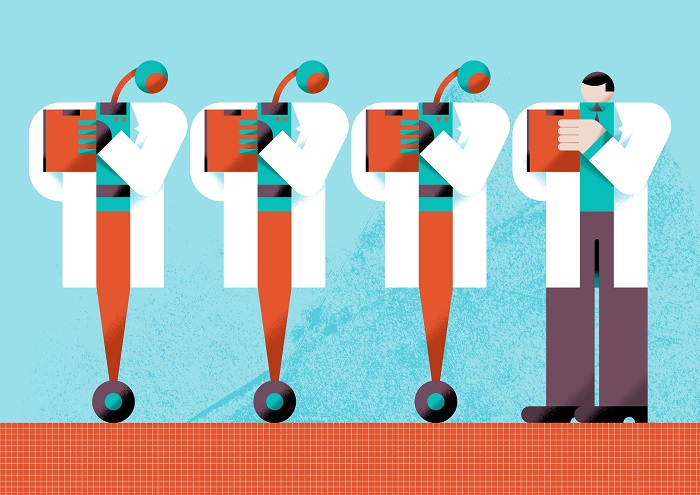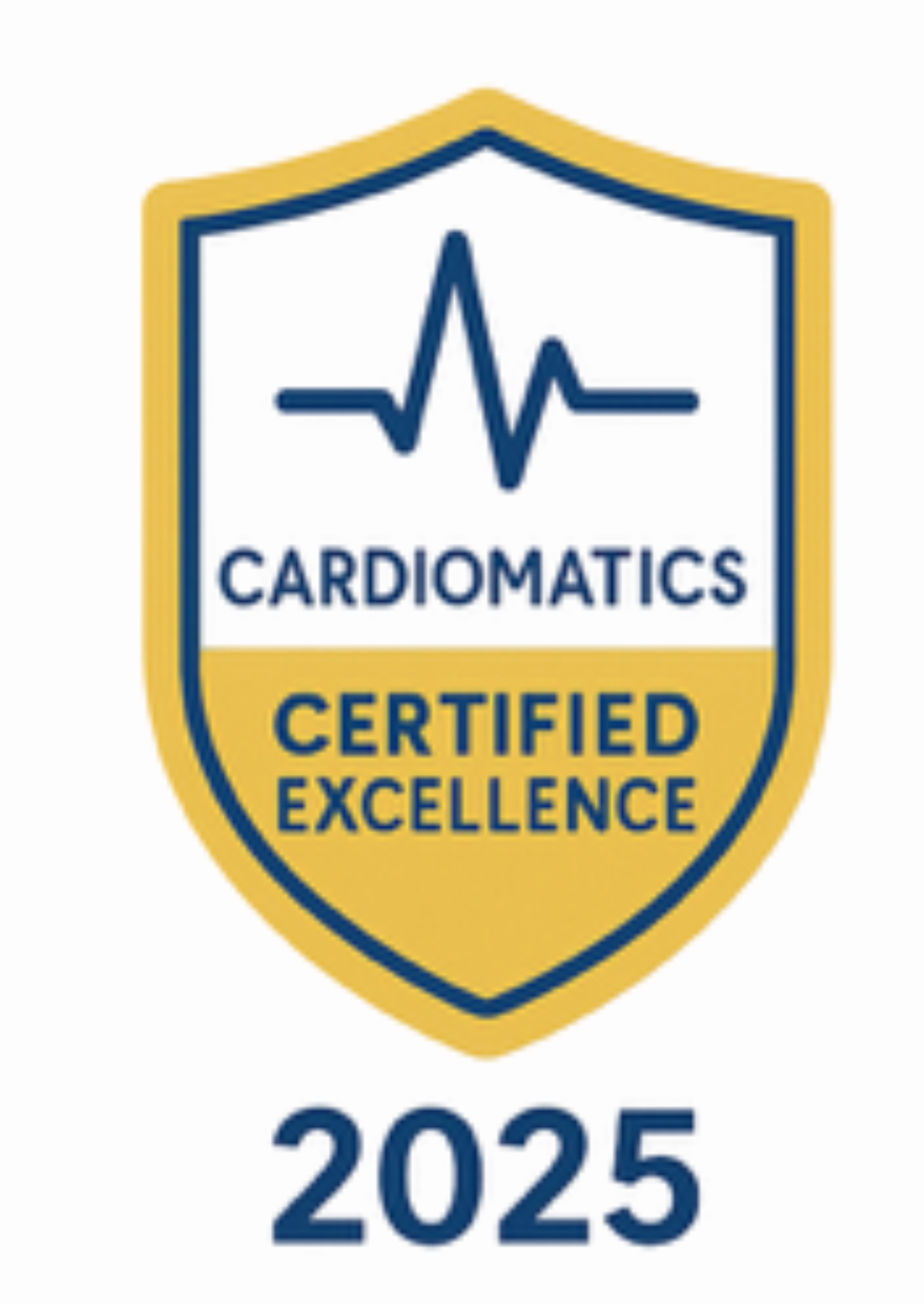Technology provides us with more and more possibilities in many areas of life, including medicine. One of the largest areas of development in the IT industry is artificial intelligence. What is its application in health care? It is no longer just a future dream, but a new reality for clinicians and patients who can already benefit from new technologies. One such field of medicine is cardiology, where artificial intelligence algorithms are used to analyse ECG signals. How does this work and how can it affect the future of cardiology and the quality of treatment for patients?
What is artificial intelligence?
In order to understand the use of algorithms in modern cardiology, it is worth explaining what artificial intelligence actually is.
AI is a series of activities that involve modelling knowledge and data, and developing series of algorithms and computing power that allow for a relatively automated system for obtaining, processing and analysing data. All this provides the possibility to autonomously improve a system or predict behaviour and actions based on the analysis of collected data and correlations between them. In other words, AI systems work by taking large amounts of data, analysing that data for correlations and patterns, and using those patterns to predict future behaviour. Put simply, it is the ability of a system to learn, generalise, put knowledge into practice, and make decisions.
The great advantage of AI systems is that they are able to process large amounts of data much faster than a human. In addition, they make predictions with much greater accuracy. Thanks to this, they can be successfully used in tasks or fields where it is important to focus on details. They reduce the time needed to perform tasks that require the analysis of a large amount of data, and, most importantly, they provide consistent results. The use of algorithms in cardiology is therefore a solution that can improve a doctor’s daily work and increase patient satisfaction.
Cardiac debt – the challenge for doctors and patients
Modern cardiology is currently facing many challenges. According to WHO, cardiovascular diseases are the leading cause of death worldwide – it is estimated that they are the cause of 17.9 million deaths each year. Cardiovascular diseases are a group of diseases of the heart and blood vessels. They include coronary artery disease, cerebrovascular disease, and rheumatic heart disease. More than four in five cardiovascular deaths are caused by heart attacks and strokes, and a third of these deaths occur in people under the age of 70.
In Poland, this problem looks similar: the main cause of death are cardiovascular diseases. They accounted for about 35% of all deaths in 2021. An important factor that has exacerbated the scale of the problem is the COVID-19 pandemic. It has led to so-called cardiac debt, i.e. unmet needs in the field of diagnosis and treatment of cardiovascular diseases and the postponement of many planned treatments. Therefore, patient numbers are constantly on the rise, and in turn the list of doctors’ duties is only getting longer. In addition, bureaucracy and the need for a doctor to fill out reams of paperwork significantly reduces the time they can devote to a detailed interview with a patient.
All this is not remotely helped by the fact that the analysis of one of the most common diagnostic tests, i.e. the Holter monitor ECG test, is carried out manually and requires a lot of expertise and experience on the part of the doctor who interprets the results. The analysis of ECG signals is therefore tedious and time-consuming, and the patient’s waiting time for a diagnosis can take several days or even weeks. In the case of cardiovascular diseases, however, prevention and early diagnosis is crucial.
Algorithms and cardiology
Artificial intelligence is a tool that makes it possible to automate the analysis of ECG signals, and also makes this analysis more precise. The available technology allows us to monitor patients 24/7, both in a hospital and at home. Thanks to AI, the signals from a test are not analysed by a human, but by using algorithms developed using data from billions of heartbeats. They allow the preparation of a transparent report in a short time, ready for a doctor to interpret and make a final diagnosis. This is a huge breakthrough in the development of technology – it must be remembered that a decade ago such advanced diagnostic methods were beyond reach.
An example of a solution that is already used in clinical practice is Cardiomatics, a modern software that operates in the cloud and is used to automate the analysis of ECG signals based on artificial intelligence algorithms. Traditional analysis of data from a Holter monitor test study is carried out manually. This means that a doctor personally prepares a report based on the signals recorded during the examination, with their interpretation and diagnosis possible only afterwards. It takes an average of about 30 – 60 minutes to prepare such a report, so it is fairly time-consuming. This is where Cardiomatics steps in. Over a short time, it is able to detect 20 different arrhythmias.
With the use of our software, a doctor can connect the diagnostic device to any computer and send the signals from the ECG to the cloud. There, the signals are analysed by artificial intelligence algorithms, reducing the analysis time by up to 80% compared to the standard procedure. In this way, with just four clicks, a reliable, transparent report is created. Using this report, a doctor can draw conclusions about the current condition of a patient, as well as their diagnosis and possible treatment plan.
Cardiomatics is a class CE IIa medical device. This attests to its precision and safety. The effectiveness of the algorithms used in the software has been additionally confirmed clinically in studies carried out by institutions including the University of Basel, the Medical University of Warsaw. The tool is compatible with most medical devices, so it does not require any changes in existing technical equipment.
Artificial intelligence – an opportunity for doctors and patients
There are numerous benefits to using artificial intelligence in cardiology. Those that have a direct impact on a doctor’s work include the reduced time spent on analysis of ECG signals, a reduction of costs associated with the development of results, the possibility to diagnose more patients, as well as greater diagnostic precision resulting from the support of a reliable tool that, thanks to “trained” algorithms, can register issues that may be missed by a human.
The growing number of people requiring cardiac diagnostics means that artificial intelligence can play a particularly beneficial role. It can help shorten queues to cardiologists, extend prevention and treatment to a wider group of patients, offer precise and early detection of heart rhythm abnormalities, reduce bureaucracy, and increase time for doctor-patient contact. In the long term this increases patient satisfaction with health care services.
Due to the abovementioned challenges of modern cardiology, as well as the possibilities offered by artificial intelligence, PZU Zdrowie has decided to initiate cooperation with Cardiomatics.
“According to data from the Polish Central Statistical Office, cardiovascular diseases are responsible for almost half of all deaths of Poles, which is why we want to develop our cardiac diagnostics tools. Artificial intelligence can significantly improve a doctor’s work, and this, in turn, benefits patients. Comprehensive analysis allows us to achieve optimal treatment effects and accelerates reactions when a patient’s condition is worrying,” Oliwer Kubicki, Member of the Management Board at PZU Zdrowie.
This innovative software will be piloted in the medical centre on Górnośląska Street in Warsaw, and then it will be extended to include medical facilities on Puławska and Chmielna Streets. Cardiomatics will be used as part of the “Healthy Heart” cardiovascular research package offered by PZU Zdrowie.
“PZU Zdrowie and ourselves are united in the common goal of using modern technology to facilitate patients’ access to medical care. Our second goal is to increase the working conditions of our staff. Our cooperation is also further proof that our solution is enjoying increasing trust in the medical community,” Rafał Samborski, President of the Management Board at Cardiomatics.
Hundreds of GPs and cardiologists use the Cardiomatics solution every day, streamlining workflow and saving valuable time. Would you like to automate and improve your ECG analysis?


